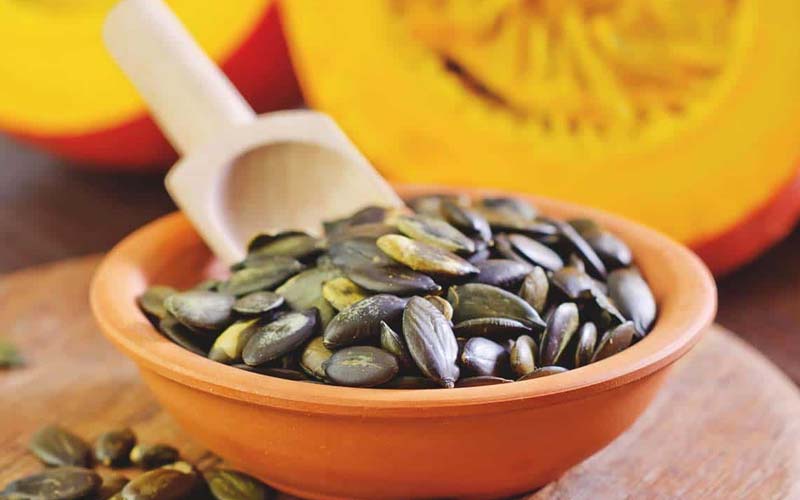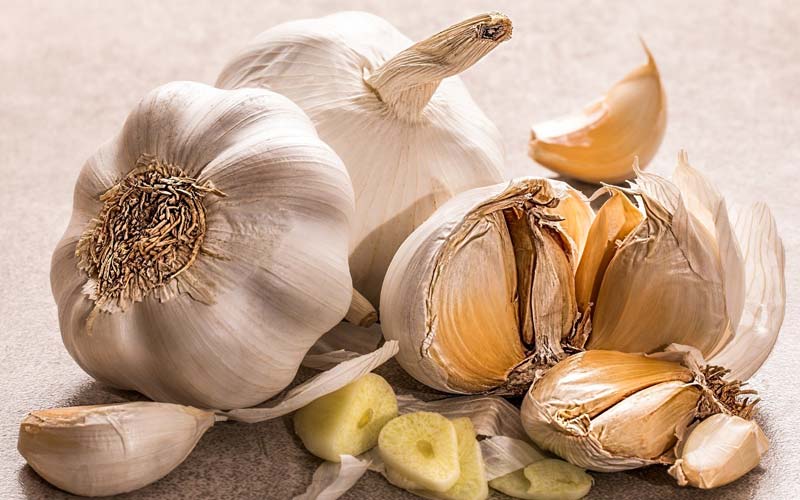As a responsible pet owner, ensuring your dog remains healthy and free from parasites is a top priority. Intestinal worms, such as roundworms, tapeworms, and hookworms, can pose serious health risks to your dog, ranging from mild discomfort to more severe conditions like malnutrition or organ damage. While traditional deworming medications are widely available, many pet owners are turning to natural alternatives to avoid the use of harsh chemicals.

Natural deworming methods offer a gentler approach, supporting your dog’s overall health while eliminating parasites. These remedies are often just as effective for regular maintenance and prevention. In this article, we will explore some of the best natural ways to deworm your dog, explain how they work, and offer guidance on their safe use. By opting for natural treatments, you can protect your dog from worms while minimizing exposure to synthetic substances.
Let’s take a closer look at the natural deworming solutions available and how they can help keep your dog healthy and parasite-free.
1. Understanding Dog Worms: Types and Symptoms
Common Worms in Dogs
Dogs are susceptible to several types of intestinal worms, with the most common being roundworms, tapeworms, hookworms, and whipworms. Roundworms are large, spaghetti-like parasites that live in the intestines and are particularly dangerous for puppies, as they can stunt growth and cause malnutrition. Tapeworms are long, flat worms that attach to the intestinal walls, often visible in a dog’s stool as small, rice-like segments. Hookworms are smaller but more dangerous, as they feed on the dog’s blood, leading to anemia, especially in puppies. Whipworms burrow into the intestinal lining and can cause severe irritation, leading to weight loss and bloody diarrhea.
Signs Your Dog Has Worms
Identifying the signs of a worm infestation early is key to ensuring your dog stays healthy. Some common symptoms include weight loss, bloated abdomen, diarrhea, vomiting, and visible worms or worm segments in the stool. Dogs with worms may also experience lethargy, a dull coat, or scooting behavior (dragging their bottom on the ground) due to itching. In severe cases, especially with hookworms, you may notice pale gums, which is a sign of anemia.
Importance of Early Detection
Catching a worm infestation early is critical to preventing serious health complications. If left untreated, worms can cause malnutrition, organ damage, and even death in extreme cases. Regular fecal tests and prompt treatment are essential, whether using natural remedies or conventional medications, to ensure your dog remains healthy and free from parasites.

2. Why Choose Natural Deworming Methods?
Avoiding Harsh Chemicals
One of the primary reasons many pet owners seek natural deworming methods is to avoid the chemicals found in traditional deworming medications. Conventional dewormers often contain synthetic substances designed to eliminate parasites quickly, but these chemicals can sometimes cause side effects such as vomiting, diarrhea, or allergic reactions. Dogs with sensitive stomachs or pre-existing health conditions may be more vulnerable to these adverse effects, prompting owners to search for gentler, natural alternatives.
Benefits of Natural Remedies
Natural deworming remedies offer several benefits, making them a popular choice for health-conscious pet owners. Unlike chemical-based dewormers, natural methods are typically milder on your dog’s digestive system, reducing the risk of side effects. Additionally, many natural remedies also provide added health benefits, such as boosting the immune system, improving digestion, and delivering essential nutrients. For instance, pumpkin seeds not only help expel parasites but are also a good source of vitamins and minerals. Natural remedies can also be used regularly as part of a preventative care routine, helping to keep your dog worm-free over time.
Environmental Considerations
Another advantage of natural deworming methods is their eco-friendliness. Pharmaceutical dewormers can leave chemical residues in the environment, particularly in your dog’s waste, which can contaminate soil and water sources. In contrast, natural dewormers, such as diatomaceous earth or herbal supplements, break down more easily and have less of an impact on the ecosystem. By opting for natural treatments, pet owners can not only safeguard their dog’s health but also contribute to a more sustainable, environmentally responsible approach to pet care.

3. Top Natural Remedies for Deworming Your Dog
Pumpkin Seeds
Pumpkin seeds are a well-known natural remedy for deworming dogs. They contain a compound called cucurbitacin, which paralyzes worms in the digestive tract, making them easier to expel through your dog’s stool. To use, grind raw, unsalted pumpkin seeds and mix them with your dog’s food. The dosage typically depends on the dog’s size, with smaller dogs needing about ¼ teaspoon and larger dogs up to 1 teaspoon per day. This treatment is safe and can be given daily for prevention or over a few weeks for active infestations.
Carrots
Finely chopped carrots act as a natural dewormer by gently scraping the walls of the intestines, which helps remove mucus, worms, and other parasites. In addition to their deworming properties, carrots are packed with vitamins and minerals such as vitamin A, which supports your dog’s immune system. To incorporate carrots into your dog’s diet, simply add grated or finely chopped carrots to their meals, either raw or lightly steamed. Not only does this help combat worms, but it also provides your dog with a healthy, low-calorie snack.
Coconut Oil
Coconut oil is another powerful natural remedy that can help eliminate worms by boosting the immune system and creating an unfavorable environment for parasites. It contains medium-chain fatty acids that aid in expelling worms and improving gut health. For dosage, small dogs can be given 1 teaspoon per day, while larger dogs can have up to 1 tablespoon daily. Coconut oil can be added to your dog’s food or given directly, and it’s generally well-tolerated, providing additional benefits such as a shiny coat and improved digestion.
Apple Cider Vinegar (ACV)
Apple cider vinegar (ACV) helps balance the pH levels in your dog’s digestive system, making it more difficult for parasites to thrive. By creating a more alkaline environment, ACV can help eliminate existing worms and prevent new infestations. To use, add 1 teaspoon of raw, unfiltered ACV to your dog’s water bowl per 50 pounds of body weight. It’s important to monitor your dog’s tolerance to ACV, as some may take time to adjust to the taste. Regular use can not only help with deworming but also support overall digestive health.
Diatomaceous Earth (DE)
Diatomaceous earth (DE) is a natural, non-toxic substance made from fossilized remains of diatoms, which can effectively dehydrate and kill internal parasites. However, it’s essential to use food-grade DE to ensure it’s safe for consumption. DE works by absorbing the oils and fats from the worm’s outer layer, causing them to dehydrate and die. To administer, sprinkle DE over your dog’s food once daily for about a week. Dosage ranges from 1 teaspoon for small dogs to 1 tablespoon for larger breeds. Always consult a vet for guidance on safe and appropriate use.
Turmeric
Turmeric contains curcumin, a compound known for its anti-inflammatory and anti-parasitic properties. It helps reduce the damage caused by intestinal worms and supports your dog’s immune system in fighting off parasites. To use turmeric as a dewormer, you can mix ¼ teaspoon of ground turmeric per 10 pounds of body weight into your dog’s food. Since turmeric can be hard to absorb on its own, pairing it with a healthy fat, like coconut oil, increases its effectiveness. Regular use can help in both prevention and treatment of worm infestations.
Herbs (Wormwood, Cloves, Black Walnut)
Certain herbs like wormwood, cloves, and black walnut are powerful natural dewormers, but they must be used cautiously due to their potency. Wormwood is effective against a variety of worms, but it can be toxic in large doses, so only small amounts should be given under veterinary guidance. Cloves contain eugenol, which is known to kill parasite eggs, making them an important addition to a deworming routine. Black walnut is another herbal option that can help expel worms, but it is also potent and should only be used for short periods with professional supervision. Due to the strength of these herbs, it’s critical to consult a vet to ensure safe usage and avoid potential toxicity.
Garlic
Although garlic is sometimes considered controversial due to its potential toxicity in large amounts, it can be an effective natural dewormer when used in small, controlled doses. Garlic contains allicin, a compound known for its anti-parasitic properties. It helps eliminate worms while boosting the immune system. For safe use, give no more than ¼ clove of fresh garlic per 10 pounds of body weight, mixed into your dog’s food. However, because garlic can be harmful if misused, it’s important to consult with a veterinarian before incorporating it into your dog’s diet.

4. Preventing Worms Naturally
Regular Use of Natural Remedies
To effectively prevent future worm infestations, it’s important to use natural remedies regularly as part of your dog’s routine care. Remedies like pumpkin seeds, diatomaceous earth, and coconut oil can be given in small doses periodically to keep parasites at bay. By incorporating these treatments into your dog’s diet, you not only help prevent worms but also support overall health.
Clean Environment
Maintaining a clean environment is key to reducing the risk of worms. Regularly wash your dog’s bedding, toys, and food bowls to remove any eggs or larvae. Additionally, cleaning up after your dog during walks and in the yard can prevent the spread of parasites. A hygienic environment helps minimize exposure to potential sources of infection.
Healthy Diet
A balanced, nutritious diet is essential for strengthening your dog’s immune system, which can help prevent worms from taking hold. Feeding your dog high-quality food rich in vitamins, minerals, and probiotics supports their overall health and creates an internal environment that is less hospitable to parasites.
Routine Vet Check-Ups
Even with natural prevention methods, regular vet check-ups are essential for monitoring your dog’s health. Routine fecal exams can detect the presence of worms early, allowing for prompt treatment. Your vet can also provide personalized advice on natural remedies and ensure your dog remains worm-free.

5. When to Seek Veterinary Care
Recognizing Severe Infestations
While natural deworming methods can be effective for many dogs, there are times when they may not suffice, especially in cases of severe infestations. If your dog shows persistent symptoms or if natural remedies fail to alleviate the problem, it’s crucial to consult a veterinarian. Severe infestations may require stronger, prescription treatments to fully eliminate the parasites and address any complications.
Balance Between Natural and Conventional Treatments
In some cases, a combination of natural and conventional treatments may offer the best results. Natural remedies can support overall health and act as a preventive measure, while veterinary-prescribed medications can more aggressively target and eliminate severe infestations. Your vet can provide guidance on integrating these approaches safely and effectively.
Signs to Watch For
Be vigilant for signs that indicate a severe worm infestation requiring immediate veterinary care. Symptoms such as persistent vomiting, a bloated abdomen, severe lethargy, or significant weight loss can signal a serious problem. Additionally, if you notice pale gums or blood in the stool, seek veterinary assistance promptly to prevent further health issues and ensure appropriate treatment.

Conclusion
In summary, natural deworming methods offer a gentle yet effective alternative to conventional treatments, allowing pet owners to address intestinal worms while avoiding harsh chemicals. Remedies such as pumpkin seeds, coconut oil, and diatomaceous earth can help expel parasites and support your dog’s overall health. Additionally, maintaining a clean environment, providing a balanced diet, and using natural remedies regularly can play a crucial role in preventing future infestations.
However, it’s important to remain vigilant for signs of severe worm infestations, which may require more intensive veterinary intervention. Balancing natural and conventional treatments, under the guidance of your veterinarian, can ensure comprehensive care for your pet.
By incorporating these natural methods into your dog’s routine and maintaining regular vet check-ups, you can effectively safeguard your furry friend’s health. If you suspect your dog has worms or if you’re considering natural deworming methods, consult with your veterinarian to tailor the best approach for your pet’s needs.
Take proactive steps today to keep your dog healthy and worm-free, and ensure their well-being with a combination of natural care and professional guidance.